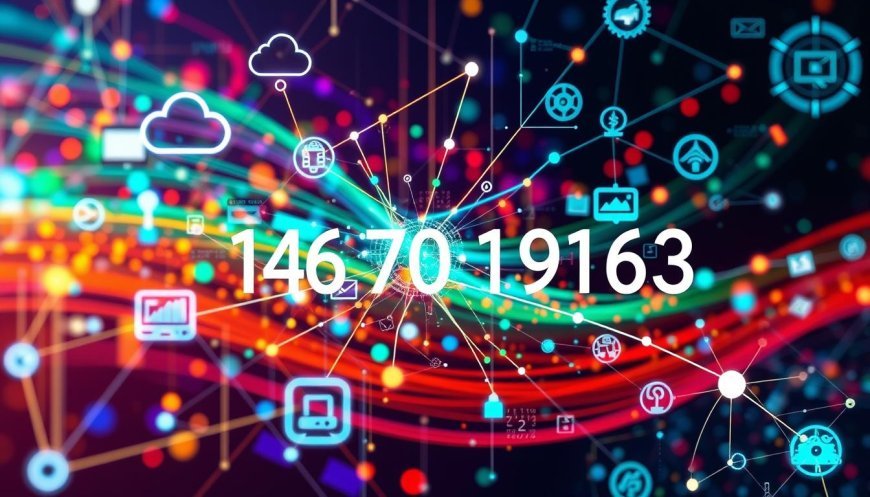What Is My IP? Understanding Your Internet Protocol Address

The term "What is my IP" is one of the most frequently searched phrases online, reflecting our growing reliance on the internet and the need to understand how we connect to it. But what exactly is an IP address, and why is it important? This article dives into everything you need to know about IP addresses, their types, uses, and how to find yours.
What Is an IP Address?
An IP (Internet Protocol) address is a unique identifier assigned to each device connected to a network that uses the Internet Protocol. Think of it as a digital address that allows devices to communicate with one another over the internet.
Why Is an IP Address Important?
IP addresses are fundamental to the functioning of the internet. Here’s why they matter:
-
Device Identification: Every device, whether a computer, smartphone, or smart TV, needs an IP address to connect to the internet. Without it, devices can’t communicate.
-
Data Routing: IP addresses help route data packets between devices. For instance, when you visit a website, your IP tells the server where to send the requested information.
-
Geolocation Services: Businesses and apps use IP addresses to offer location-based services, such as weather updates, local news, or targeted advertisements.
-
Network Troubleshooting: Knowing your IP can help diagnose and resolve connectivity issues, whether at home or in the office.
Types of IP Addresses
IP addresses come in various types based on their use, version, and configuration. Here’s a detailed breakdown:
1. IPv4
-
Format: Four groups of numbers separated by dots (e.g.,
192.168.1.1). -
Range: 0.0.0.0 to 255.255.255.255.
-
Features: Limited to approximately 4.3 billion unique addresses.
-
Usage: Most common version in use today.
IPv4 Limitations
The world’s growing number of devices has led to IPv4 address exhaustion, which means there are no more new IPv4 addresses to allocate. This limitation prompted the development of IPv6.
2. IPv6
-
Format: Eight groups of four hexadecimal digits separated by colons (e.g.,
2001:0db8:85a3:0000:0000:8a2e:0370:7334). -
Features: Provides a virtually limitless number of addresses.
-
Advantages: Improved security, better performance, and future-proofing for expanding internet usage.
Why IPv6 Matters
IPv6 is not just about address space. It also includes built-in features like encryption and improved support for mobile networks, making it essential for the modern internet.
3. Public IP Addresses
-
Assigned by your Internet Service Provider (ISP).
-
Used to identify your device on the internet.
-
Shared across all devices in your home or business network (via NAT).
Importance of Public IPs
Your public IP address is what websites and services see when you access the internet. It’s also used for services like online gaming, video conferencing, and remote desktop connections.
4. Private IP Addresses
-
Used within local networks (e.g., home or office).
-
Examples:
192.168.0.1,10.0.0.1. -
Typically assigned by your router.
Benefits of Private IPs
Private IPs enable multiple devices to connect to the same network without requiring individual public IPs. This system conserves address space and enhances security within the local network.
5. Static IP Addresses
-
Remains constant over time.
-
Typically used for servers, hosting, or businesses that require consistent connectivity.
Use Cases for Static IPs
-
Hosting websites.
-
Running email servers.
-
Setting up remote access services.
6. Dynamic IP Addresses
-
Changes periodically.
-
Assigned by ISPs using DHCP (Dynamic Host Configuration Protocol).
Advantages of Dynamic IPs
-
Cost-effective.
-
Reduces the risk of certain types of cyberattacks, as the address changes frequently.
How to Find Your IP Address
Finding your IP address is straightforward, whether you’re using a computer, smartphone, or another device. Here’s how to do it:
On Windows
-
Open the Command Prompt.
-
Type
ipconfigand press Enter. -
Look for the "IPv4 Address" entry under your active network connection.
On macOS
-
Go to System Preferences.
-
Click Network.
-
Select your active network connection and look for the IP address.
On Smartphones (Android/iOS)
-
Open your Wi-Fi settings.
-
Tap on your connected network.
-
Look for the IP address details.
Online Tools
If you don’t want to dig through settings, you can easily find your public IP by using online services like Big Write Hook or Blog Srcyart.
Common Questions About IP Addresses
Understanding IP addresses often raises several questions. Here are the answers to some of the most common ones:
1. Can Someone Track Me With My IP Address?
While an IP address reveals your approximate location (e.g., city or region), it doesn’t provide personal details like your name or exact address. However, combined with other data, it could pose privacy concerns.
2. What’s the Difference Between IPv4 and IPv6?
-
IPv4: Uses a 32-bit address space, resulting in about 4.3 billion unique addresses.
-
IPv6: Uses a 128-bit address space, allowing for trillions of addresses and offering better security features.
3. Can I Change My IP Address?
Yes, you can:
-
Restart your router for a new dynamic IP.
-
Contact your ISP for a static IP change.
-
Use a VPN (Virtual Private Network) to mask your IP.
4. Why Do IP Addresses Change?
IP addresses can change due to:
-
Network reconfiguration.
-
Dynamic allocation by your ISP.
-
Switching between networks (e.g., from Wi-Fi to mobile data).
Protecting Your IP Address
Your IP address is a gateway to your online identity. Safeguarding it is crucial for privacy and security. Here are some tips:
1. Use a VPN
A VPN encrypts your connection and masks your IP, making it harder for trackers and malicious actors to monitor your activity.
2. Avoid Public Wi-Fi
Public networks can expose your IP to potential threats. Always use a VPN when connecting to such networks.
3. Update Your Router Settings
Ensure your router’s firmware is up-to-date to prevent vulnerabilities and unauthorized access.
4. Configure Firewalls
A firewall can help block unauthorized connections to your network, adding an extra layer of security.
Fun Facts About IP Addresses
-
The first IP address was created in 1977, during the early days of the internet.
-
IPv4’s exhaustion led to the development of IPv6 in the 1990s, though full adoption has been slow.
-
There are 340 undecillion (a 39-digit number) possible IPv6 addresses—enough to assign multiple addresses to every atom on Earth!
-
Your IP address changes when you switch networks, such as moving from your home Wi-Fi to a coffee shop.
Conclusion
Understanding your IP address is essential for navigating today’s digital world. From managing devices on a network to protecting your online privacy, knowing what your IP is and how to use it empowers you to take control of your internet experience.
What's Your Reaction?































































